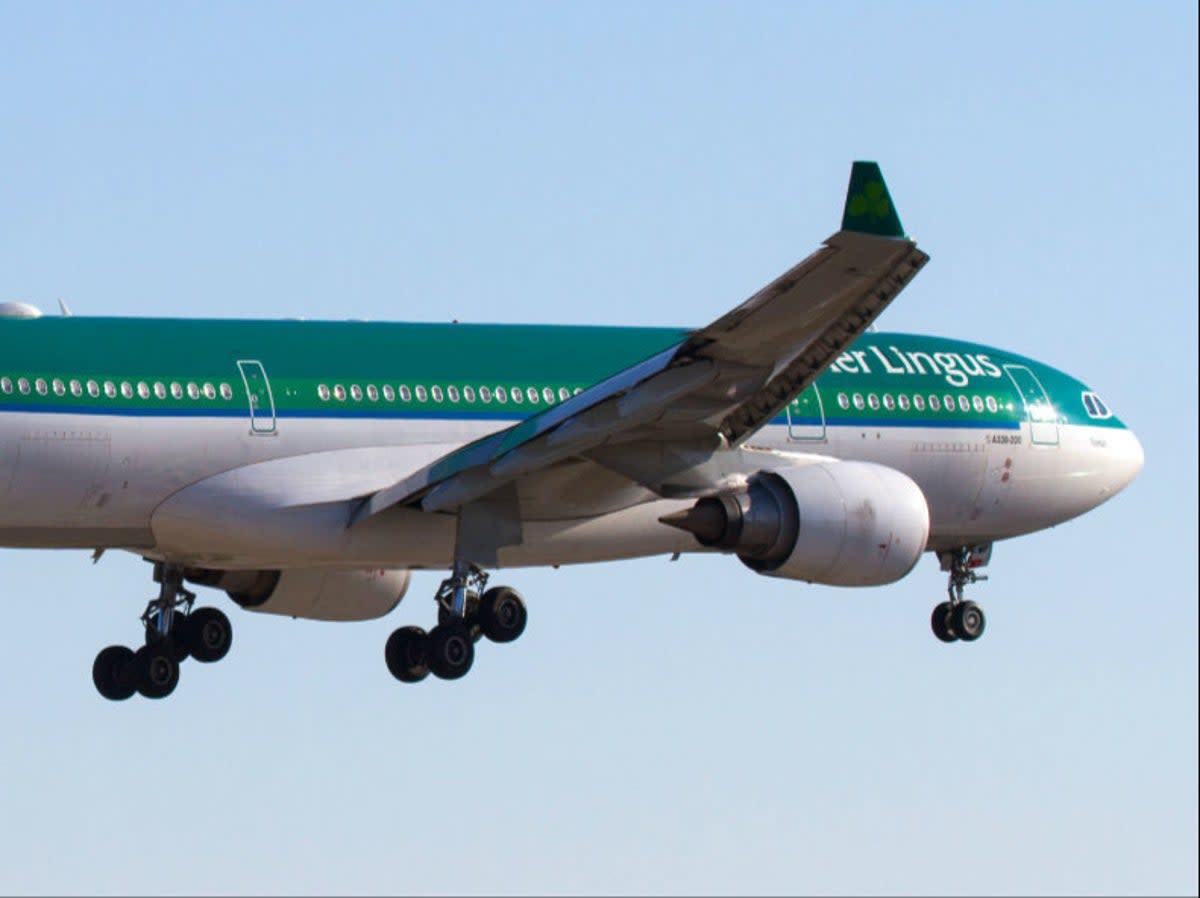Aer Lingus pilots striking in bid for 24% pay increase urged by union to end industrial action and accept deal

Weeks of disruption at Aer Lingus caused by pilots’ industrial action could soon be over after the Irish Air Line Pilots’ Association (Ialpa) has recommended acceptance of a Labour Court proposed settlement to the bitter pay dispute.
In a ballot in pursuit of a 24 per cent wage rise, pilots voted 99 per cent in favour of industrial action on an 89 per cent turnout. The airline said it could offer only 12 per cent as a no-strings pay award.
A “strict work-to-rule” began on 26 June. It has caused the cancellation of around 26 flights per day when the industrial action began, and next Tuesday, 16 July.
Together with an eight-hour strike on 1 July, almost 600 flights have been grounded over the three weeks – affecting an estimated 100,000 passengers.
Many UK passengers flying from London Heathrow to Cork and Dublin have had their flights
The Labour Court in Dublin proposed a figure just below 18 per cent over a four-year spell, almost midway between the airline’s offer and the union’s demand.
Ialpa said it “will move immediately to suspend ongoing work-to-rule action” pending the outcome of a ballot. The vote will be held between 18 and 23 July.
The union’s president, Mark Tighe, described the proposed pay increase as “a significant win for pilots”.
The dispute has damaged Aer Lingus’s profits and reputation. It has lost millions of euros in forfeited revenue and disruption costs at the start of what would normally be peak season.
Aer Lingus has also lost valuable forward bookings, with business going to Ryanair, European airlines and American carriers.
With transatlantic traffic looking weak, Aer Lingus is likely to have to bring in some cut-price offers to fill empty seats at a time when it would hope to be making prodigious profits.
Its parent company, IAG – which also owns British Airways, Iberia and Vueling – has redeployed new aircraft to other carriers in the group because of the dispute with pilots


